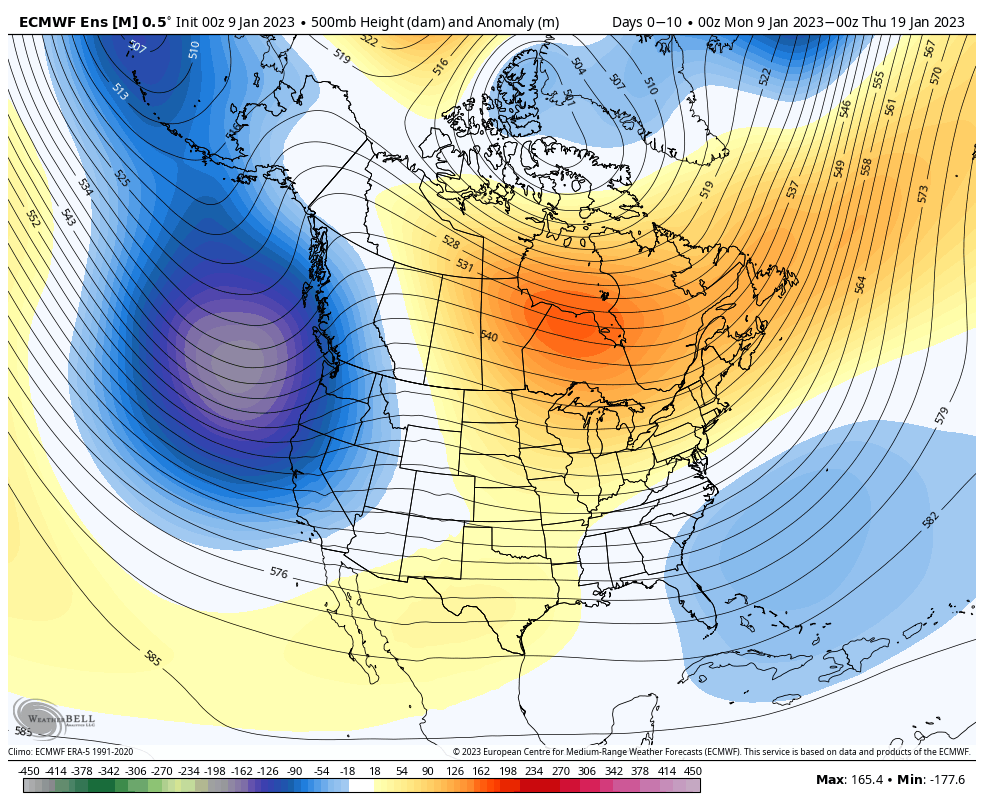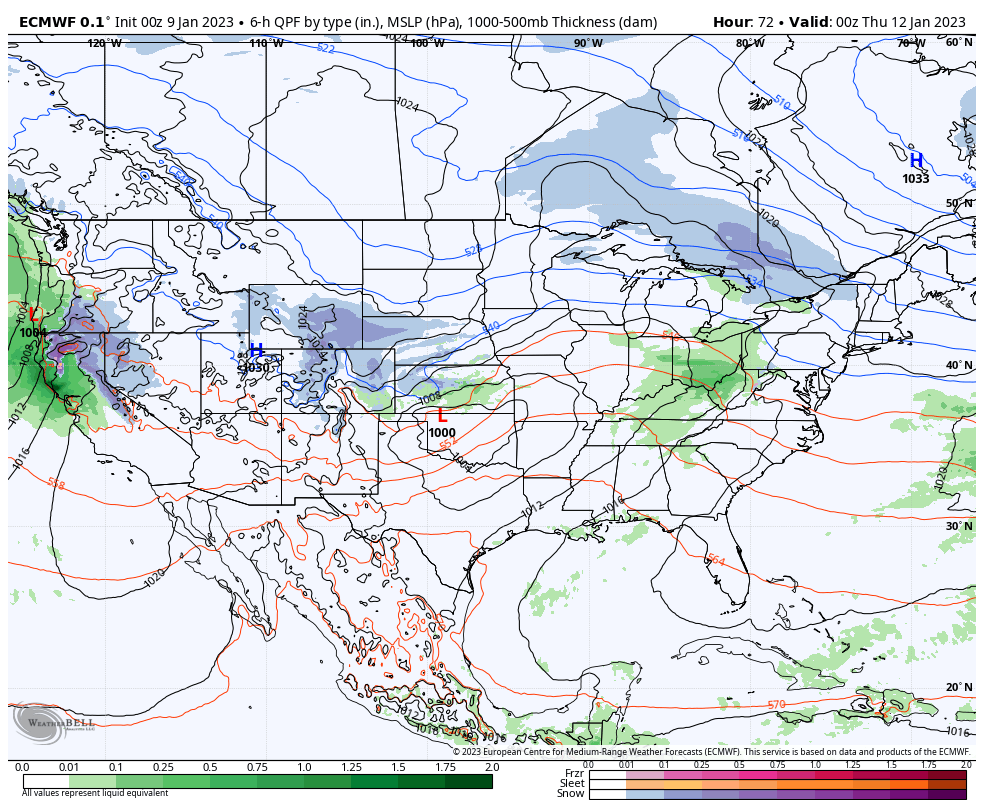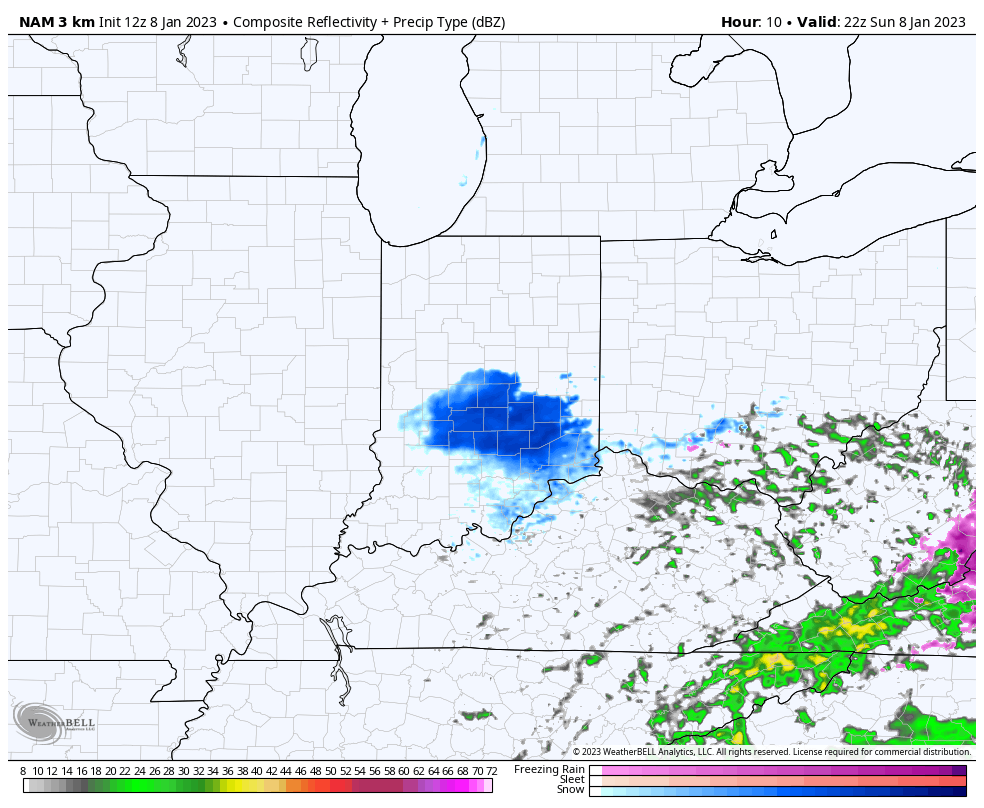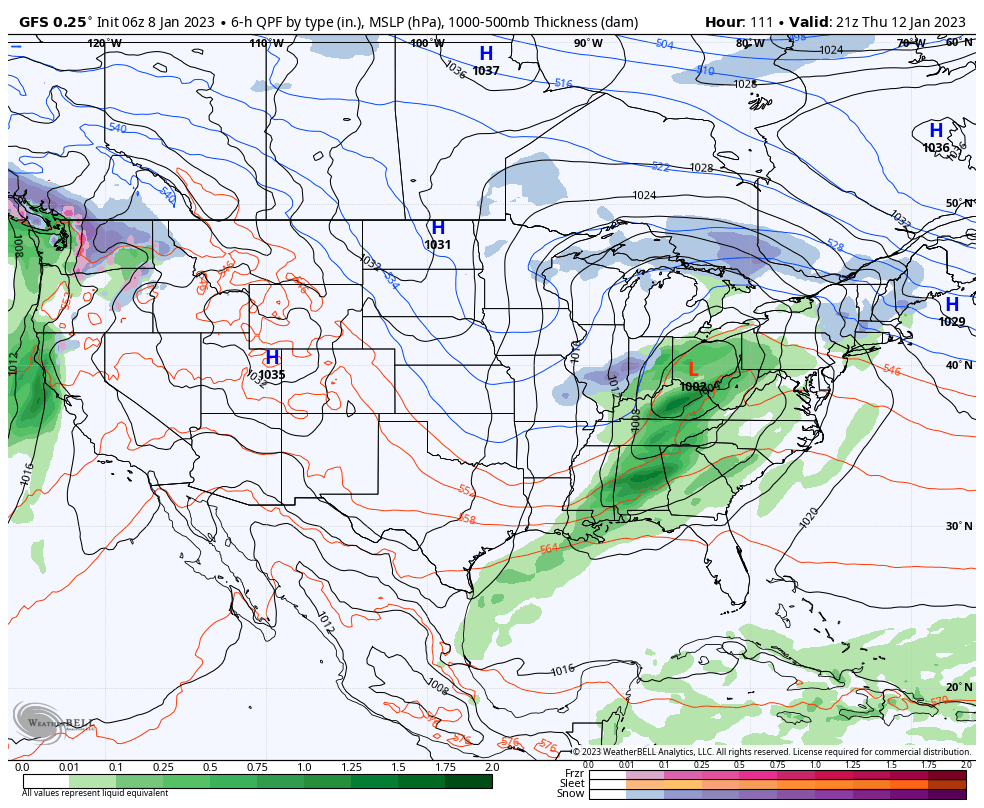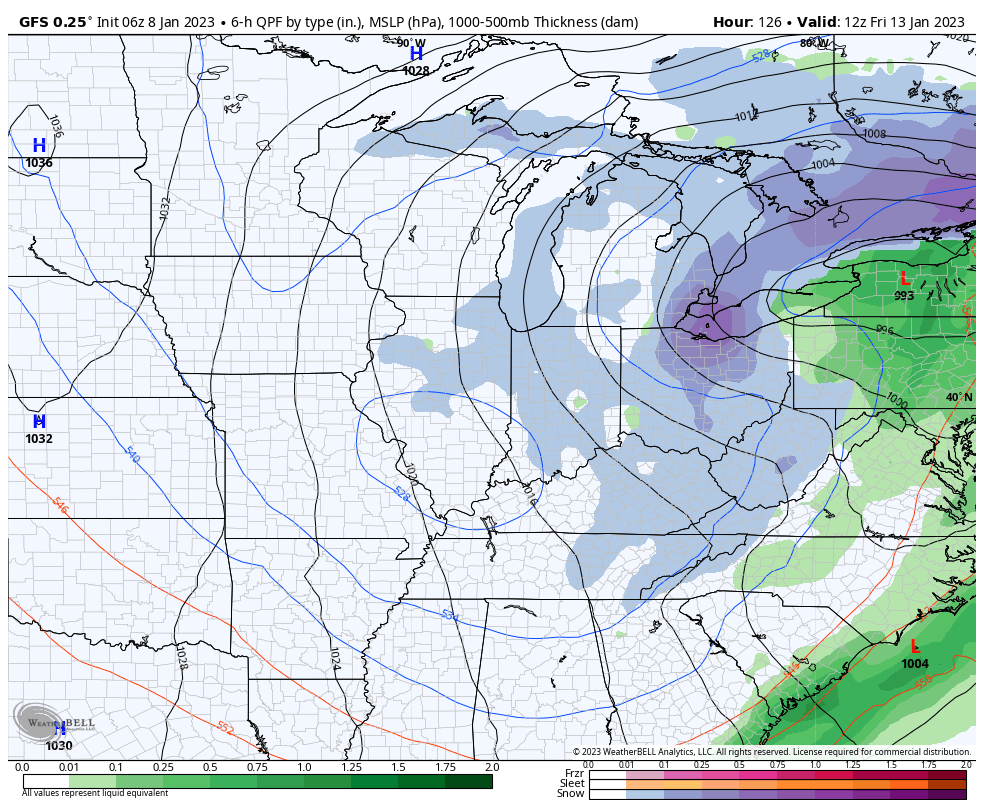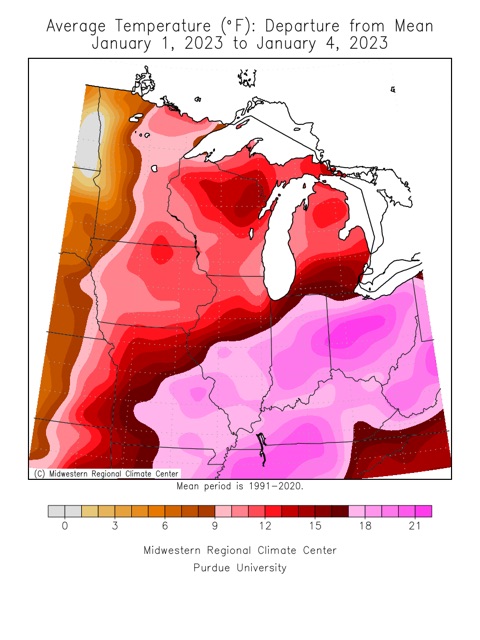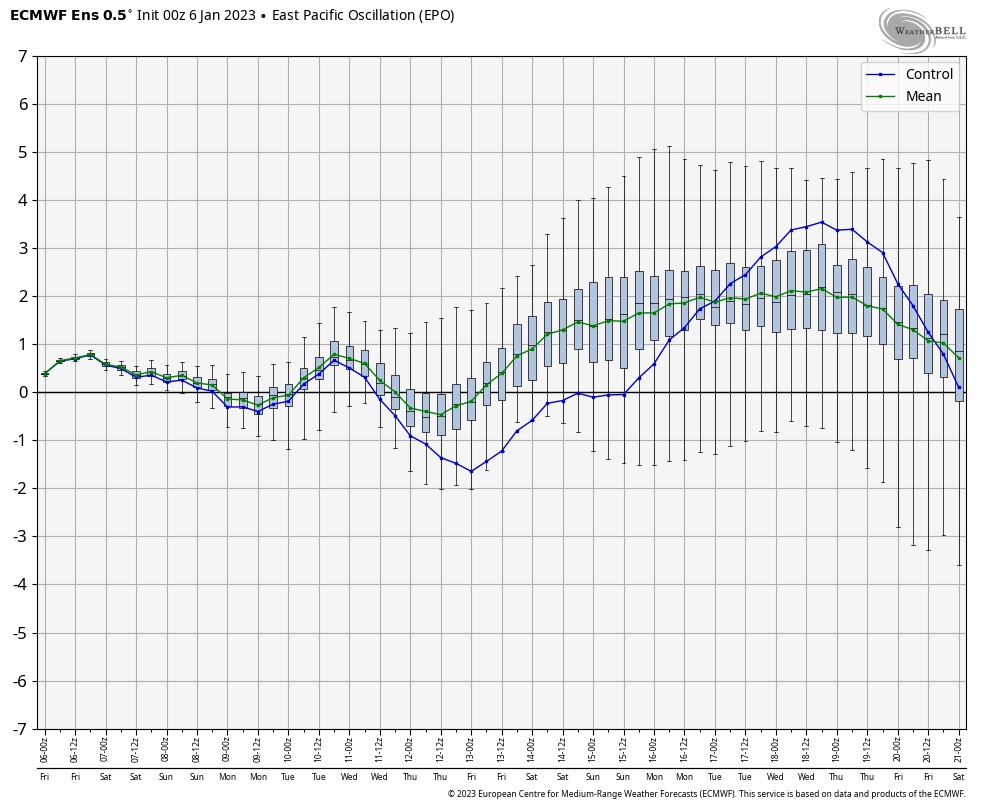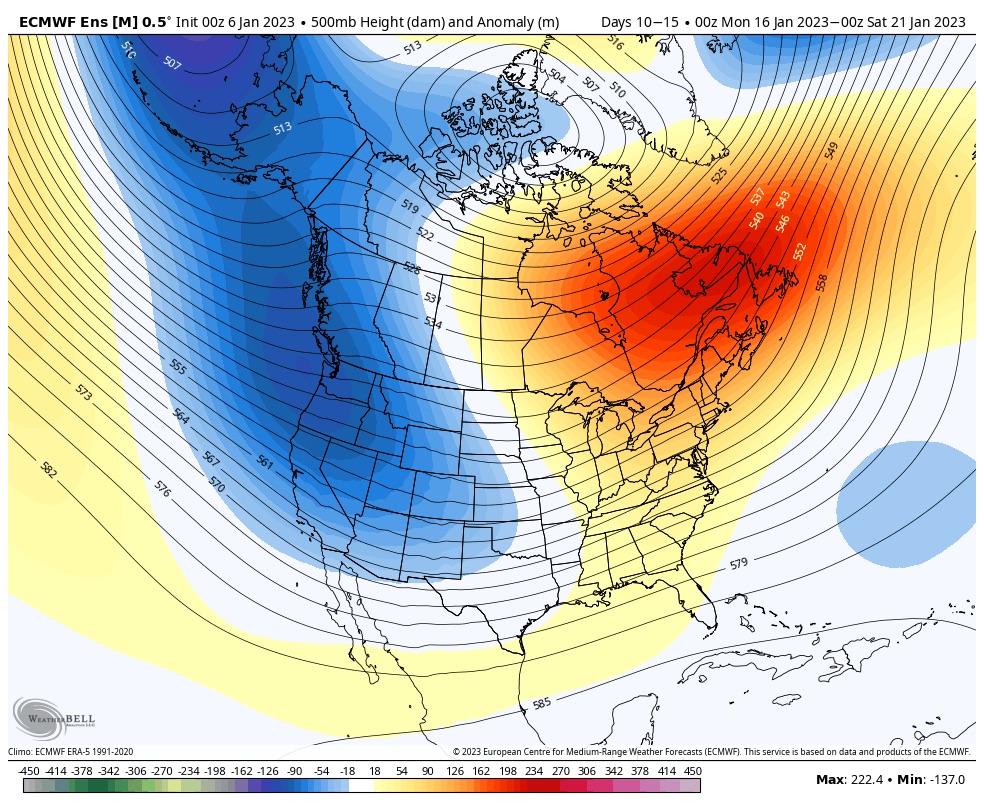Updated 01.07.23 @ 5a
The short answer, of course, to this morning’s headline is a resounding “YES,” but it’s going to take some work. We have a weak weather maker in our neck of the woods this weekend (this pesky system could still generate some light wintry accumulation across portions of the region Sunday afternoon and evening, but timing is going to have to be just right for anything overly “exciting” to occur) and another system to track the middle and latter part of next week, but the reality of the immediate term is that unseasonably warm and unseasonably quiet conditions will prevail for the better part of the upcoming 7-10 days. With that, we wanted to take some additional time to look ahead.
Before we dive into the future, let’s take a look back at how temperatures compared against the norm over the past several weeks.
Past 45 days: ending Jan 1
Past 30 days: ending Jan. 1
For all the headlines the warmth to open January has provided (rightfully so, I might add), the reality of the situation is the better part of the past month and a half has run slightly colder than normal for our neck of the woods, and a good chunk of the Lower 48 as a whole. The lack of snow and glaring missed opportunity to “cash in” just before Christmas with something more meaningful on the winter weather front has understandably led to a bad taste as we’ve opened up the ’22 – ’23 winter for some.
While the upcoming 10 days doesn’t offer up much in the way of hope for winter weather lovers, we wanted to take an opportunity to look forward to the latter part of January.
As we’ve been posting, the East Pacific Oscillation (EPO) is putting a big wrench in the favorable movement of the Madden-Julian Oscillation (MJO). In fact, the EPO is forecast to move into an even stronger positive phase over the next week. This will likely drive continued well above normal temperatures, as a whole, through mid-January. However, we do note the longer range guidance shifts the EPO slightly negative just after mid-January, continuing into early February. It’s encouraging to see the GFS extended and European extended products showing this EPO transition and the overall agreement. Of course, we also saw that same negative trend modeled for right now and that was a tremendous miss on both model’s part, so some caution is recommended from this distance.
With that said, we do note the European Weeklies (updated version as of Thursday evening) trending significantly colder in the late January and early February period.
Should the EPO finally, indeed, go negative, you combine that with an MJO that will likely still be in a favorable phase for cold, then it’s easy to understand how this pattern can flip rather quickly.
On the precipitation front, while the next week to 10 days will be quite unlike a traditional Nina pattern, the regime should become more active during the 2nd half of the month, including a busy storm track through the Ohio Valley region.
Much more later- enjoy your weekend!
